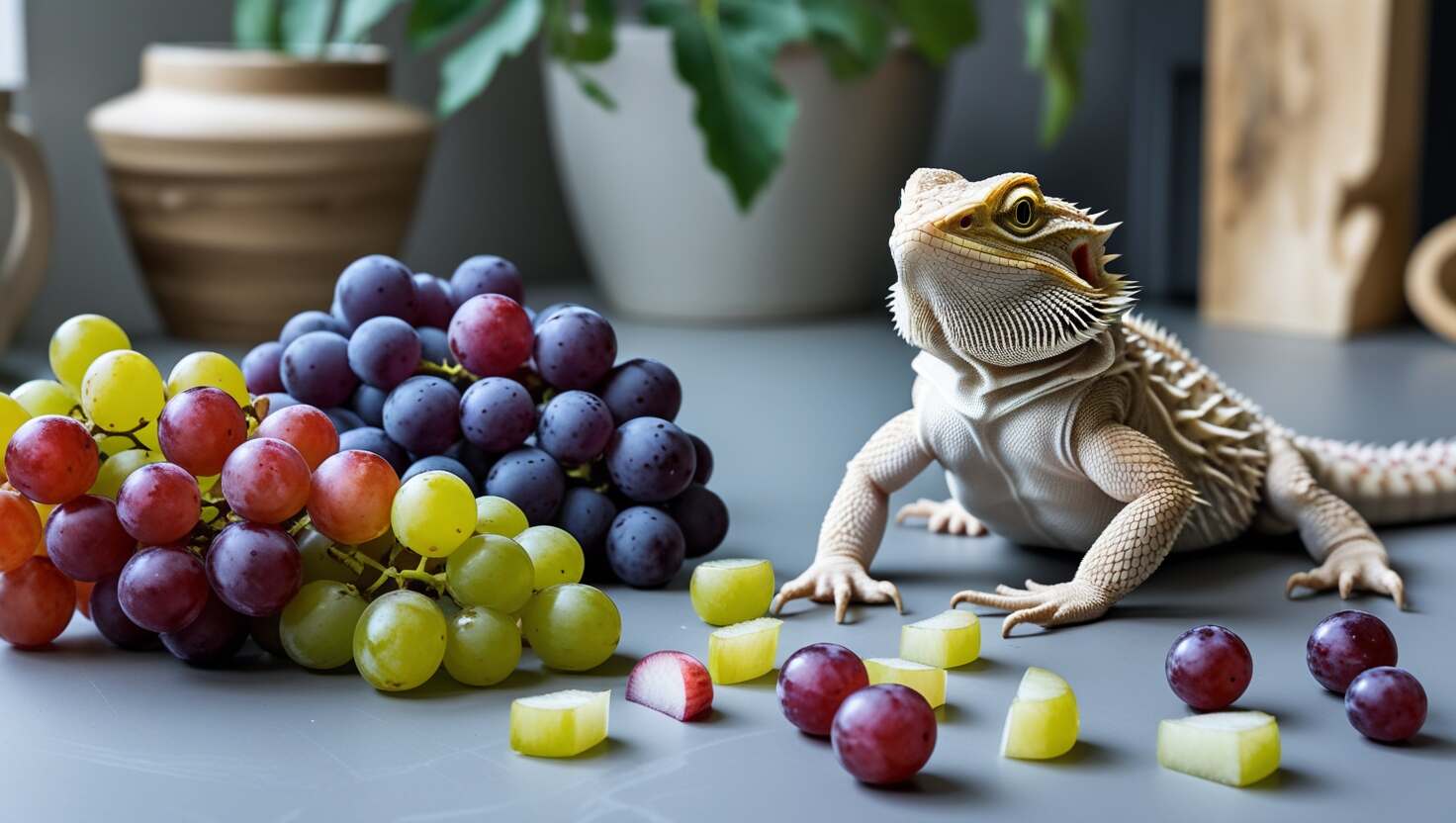Can Bearded Dragons Eat Grapes?
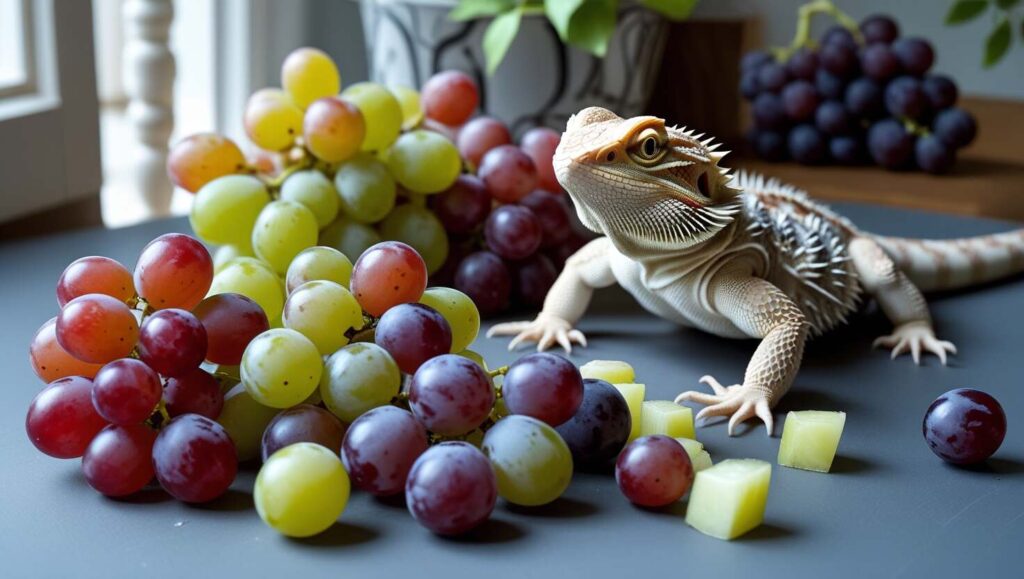
Yes, bearded dragons can eat grapes but only as an occasional treat. Always remove seeds and cut grapes into small pieces to prevent choking or digestive issues. Avoid overfeeding to prevent health problems like obesity and calcium deficiency.
General Overview
Bearded dragons are lizards that can safely enjoy grapes of all colors—red, green, purple, and even white—as an occasional treat. However, serving them requires care to protect your pet’s health. Always use seedless grapes to avoid harmful seeds that can block the digestive tract. For younger dragons, cut the grape skin into smaller pieces to prevent choking and ensure they can swallow and digest easily.
Grapes contain essential nutrients like potassium, vitamin E, and antioxidants, which boost the immune system and improve eye health. Their high water content helps with hydration, but too much sugar and oxalates may upset the stomach and lead to obesity. To promote healthy growth and nutrition, feed grapes from time to time in small amounts as part of a balanced diet.
Nutritional Considerations and Benefits of Grapes

Nutritional Profile
- Grapes are a source of energy, containing 67 calories per serving, with high water content and carbohydrates.
- They also have small amounts of proteins, fat, and important minerals like calcium, phosphorus, and sodium.
- They contain vitamins such as Vitamin A and Vitamin C, which can support kidney function, blood pressure, and smooth digestion.
Potential Health Risks
- The Ca:P ratio in grapes is not ideal, which affects calcium absorption and may cause calcium deficit over time.
- This can lead to metabolic bone disease (MBD), paralysis, or even death if untreated.
- Sugars and oxalates can trigger obesity, diabetes, tooth decay, and fatty liver disease in dragons.
- Overfeeding grapes can cause overhydration, resulting in diarrhea, dehydration, and digestive tract blockages.
Safe Feeding Instructions
- Always wash grapes to remove debris and chemicals.
- Remove the stem and any seeds to prevent choking hazards or impaction.
- Cut the grapes into small pieces, especially for younger dragons, ensuring they are no larger than the distance between their eyes.
- Limit grape intake to once a week or once a month, depending on your dragon’s condition.
- American style grapes (e.g., Concord, Muscadine) are healthier due to better calcium content, while European style grapes (e.g., Chardonnay, Thompson Seedless) require calcium-rich foods like kale or arugula to offset imbalances.
Feeding Guidelines
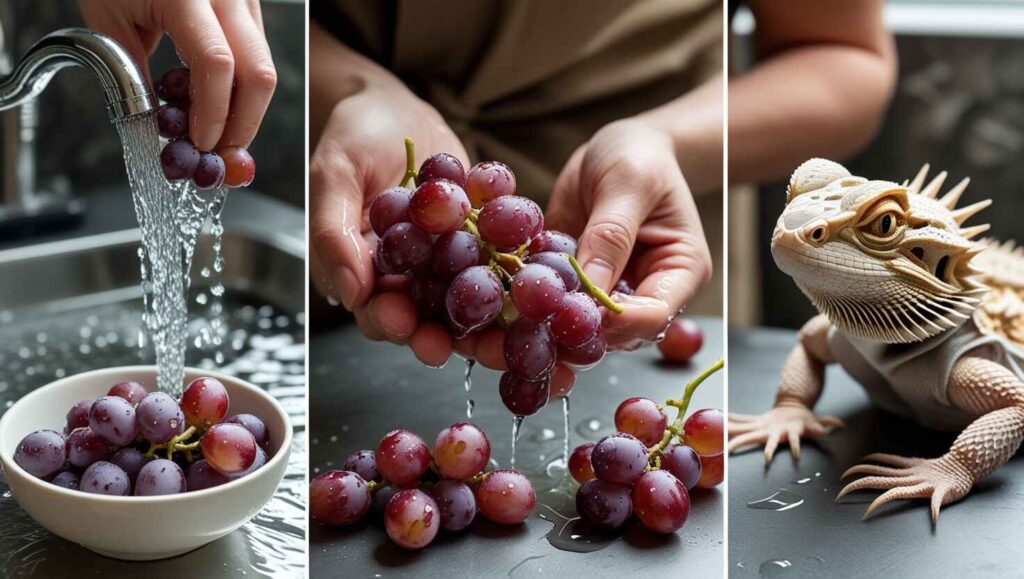
Bearded dragons enjoy grapes, but their high sugar content can cause digestion issues. Offer them as treats in small serving sizes. Always follow proper preparation instructions—wash thoroughly to remove debris and chemicals from the store or transportation. Remove the stem and any hidden seeds, even in seedless grapes. Cut into quarters or bite-sized pieces, especially for younger dragons, to prevent blockage in the digestive system.
For better nutrition, combine grapes with staple veggies like kale, bell pepper, and sweet potatoes. Bearded dragons are omnivores, needing a diet rich in greens and protein. Insects like gut-loaded crickets, dubia roaches, and waxworms are excellent for babies and juveniles. Avoid overfeeding as it may cause obesity, fatty liver disease, and other ailments.
Use fresh grapes for better nutritional value, avoiding freezing or cooking them. Regular physical enrichment, such as using high-value treats like grapes, can motivate your dragon to exercise. If you notice signs like difficulty eating, not defecating, or issues with hind legs, seek veterinary care immediately to prevent a medical emergency.
Types of Grapes and Related Foods
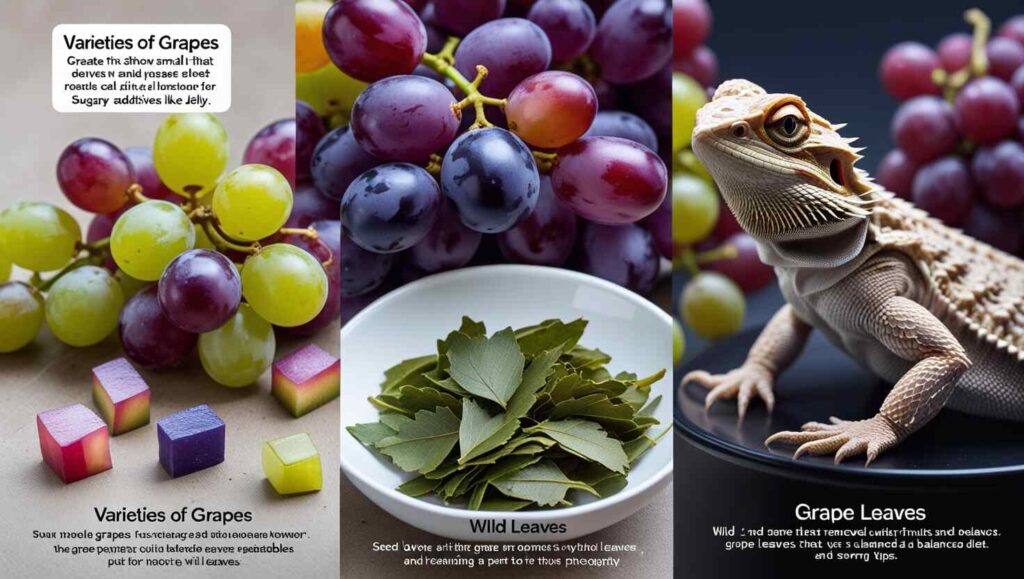
Varieties of Grapes
- Bearded dragons can safely eat green, purple, and red grapes.
- Always remove seeds to avoid blockages in the digestive tract, which can be life-threatening.
- Avoid grapes mixed with fruit jelly, high fructose corn syrup, or homemade jam, as these have high sugar content.
Wild and Domestic Grapes
- Wild grapes have thicker skin and a bitter taste, which dragons may not like.
- Check the source to avoid harmful pesticides.
- For extra enrichment, you can use pureed fruit on a lick mat to make feeding more fun.
Grape Leaves and Serving Tips
- Bearded dragons can eat grape leaves, which provide vitamin A and protein, but only in moderation.
- Pro Tip: Always wash and chop grapes or leaves before serving.
- Serve in a food bowl and pair with other balanced foods to keep their diet nutritious.
- If there are any underlying health concerns, consult a vet.
Risks and Foods to Avoid
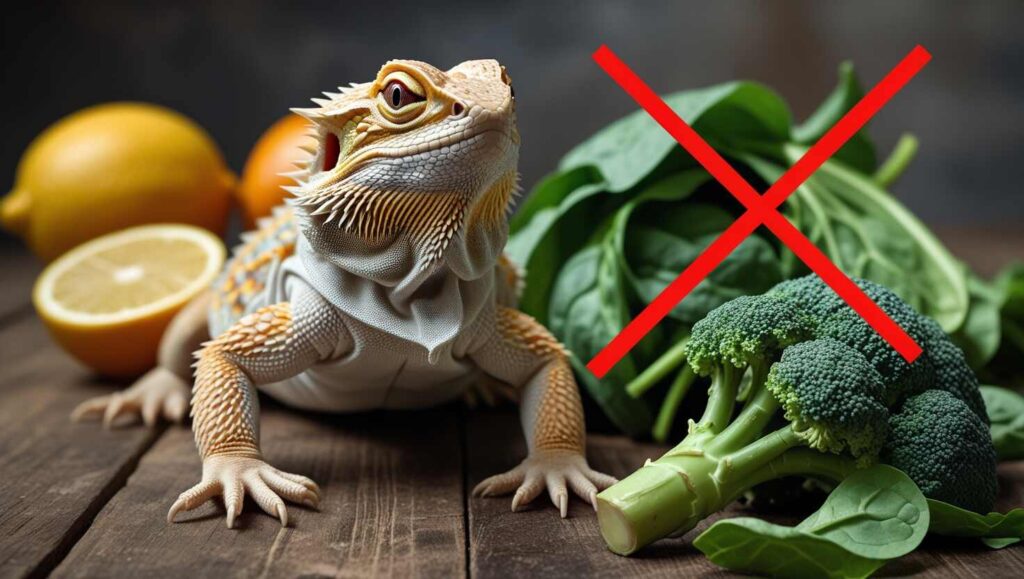
Bearded dragons can eat grapes as an occasional treat, but too many can cause health problems. Grapes contain oxalates, which may form calcium stones and block nutrients in the digestive tract. In rare cases, an allergic reaction with gasping or flaring nostrils may occur, requiring veterinary care.
Avoid citrus fruits like lemon, orange, and grapefruit, as their acidity can cause dehydration. Do not feed your pet avocado since it is poisonous, or spinach, broccoli, and lettuce, which either bind calcium or are void of nutrients and can lead to diarrhea.
Balanced diet plans should include gutload insects and non-acidic fruits for optimal health.
Other Fruits for Bearded Dragons
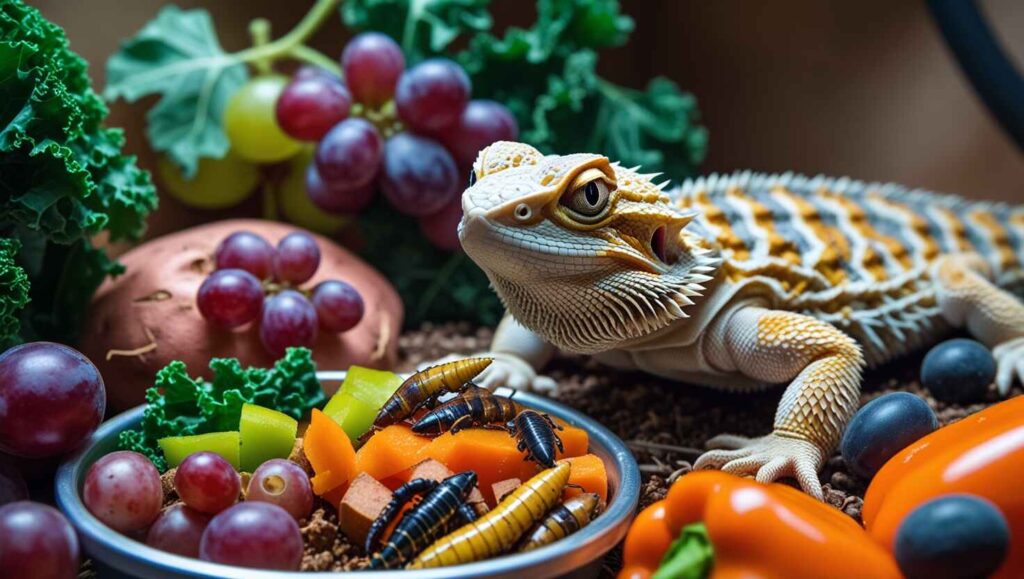
Besides grapes, your bearded dragon can enjoy fruits like mangoes, apples,Carrots, cilantro, Collard Greens, apricots, tomatoes, blueberries, and raspberries. However, avoid citrus fruits such as oranges, as they can upset the digestive system.
These sweet options provide energy but should be fed in small amounts. Mixing them with veggies helps balance their diet. Always offer a variety to keep your pet healthy and happy.
Kindly note: The content shared in this blog is gathered from online sources, some of which may not be verified. For accurate guidance on caring for your Bearded dragons, it is recommended to seek advice from a qualified veterinarian.

